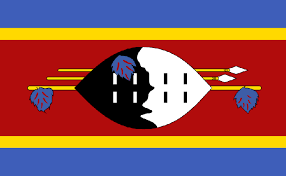Language/Swati/Grammar/Adjectives
Hi Swati learners! 😊
In this lesson, we will focus on adjectives in Swati grammar. Adjectives are essential in any language, as they describe nouns, and allow you to express yourself in a more detailed and precise manner.
Consider broadening your understanding by checking out these related lessons: Pronouns, How to Use Have & How to Use Be.
What are adjectives in Swati?[edit | edit source]
In Swati, adjectives are words that are used to describe, modify, or quantify a noun or a pronoun. Unlike in English, adjectives in Swati usually come after the noun they describe.
For example:
| Swati | Pronunciation | English |
|---|---|---|
| indlovu enamandla | in-tlo-vu e-na-man-dla | strong elephant |
| inkomo embili | in-ko-mo em-bi-li | beautiful cow |
| indoda eqotho | in-do-da e-qo-tho | lazy man |
In these examples, the adjectives "amandla" (strong), "embili" (beautiful), and "eqotho" (lazy) describe the nouns "indlovu" (elephant), "inkomo" (cow), and "indoda" (man). As you can see, the adjective comes after the noun in Swati.
Types of adjectives[edit | edit source]
There are several types of adjectives in Swati, and each type is used to describe a different aspect of a noun.
Descriptive adjectives[edit | edit source]
Descriptive adjectives are the most common type of adjective in Swati. They describe the physical or emotional state of a noun.
For example:
| Swati | Pronunciation | English |
|---|---|---|
| umfana olungile | um-fa-na o-lun-gi-le | good boy |
| inkhawabheka emhlophe | in-kha-wa-bhe-ka em-hlo-phe | white scarf |
| umangoye omuhle | u-man-go-ye o-mu-hle | pretty girl |
In these examples, the adjectives "olungile" (good), "emhlophe" (white), and "omuhle" (pretty) describe the nouns "umfana" (boy), "inkhawabheka" (scarf), and "umangoye" (girl).
Quantitative adjectives[edit | edit source]
Quantitative adjectives are used to describe the quantity or amount of a noun.
For example:
| Swati | Pronunciation | English |
|---|---|---|
| emabhodini angu | e-ma-bho-di-ni a-ngu | my two houses |
| iminyaka elishumi | i-mi-nya-ka e-li-shu-mi | ten years |
| amagumbi ayisithupha | a-ma-gum-bi a-yi-si-thu-pha | six books |
In these examples, the adjectives "angu" (my), "elishumi" (ten), and "ayisithupha" (six) describe the quantity of the nouns "emabhodini" (houses), "iminyaka" (years), and "amagumbi" (books).
Possessive adjectives[edit | edit source]
Possessive adjectives are used to indicate possession of a noun. They usually come before the noun they describe.
For example:
| Swati | Pronunciation | English |
|---|---|---|
| intombi yami | in-tom-bi ya-mi | my girl |
| ikhanda lakho | i-khan-da la-kho | your head |
| esandleni sakhe | e-san-dle-ni sa-khe | in his/her hand |
In these examples, the possessive adjectives "yami" (my), "lakho" (your), and "sakhe" (in his/her) describe the nouns "intombi" (girl), "ikhanda" (head), and "esandleni" (hand).
Comparison of adjectives[edit | edit source]
In Swati, there are several ways to compare adjectives. One way is to use the word "kakhulu" (very), followed by the adjective.
For example:
| Swati | Pronunciation | English |
|---|---|---|
| umfana okhulu | um-fa-na o-khu-lu | very good boy |
| inkhawabheka emhlophe kakhulu | in-kha-wa-bhe-ka em-hlo-phe ka-khu-lu | very white scarf |
| umangoye omuhle kakhulu | u-man-go-ye o-mu-hle ka-khu-lu | very pretty girl |
Another way to compare adjectives is to add the suffix "-kulu" (big) or "-nhle" (beautiful) to the adjective.
For example:
| Swati | Pronunciation | English |
|---|---|---|
| umfana olungakulu | um-fa-na o-lun-qa-khu-lu | very good boy |
| inkhawabheka embilikulu | in-kha-wa-bhe-ka em-bi-li-khu-lu | very beautiful scarf |
| umangoye omuhlenhle | u-man-go-ye o-mu-hle-nhle | very pretty girl |
Practice exercise[edit | edit source]
Create five sentences using adjectives in Swati. You can use the adjectives from the examples in this lesson, or create your own.
Dialogue[edit | edit source]
Here is a dialogue between two friends, using adjectives in Swati.
- Nhlanhla: Sawubona, Themba! (Hello, Themba!)
- Themba: Yebo, sawubona Nhlanhla! Unjani? (Yes, hello Nhlanhla! How are you?)
- Nhlanhla: Ngikhona kakhulu, ngiyabonga. Wena, unjani? (I'm very well, thank you. And you, how are you?)
- Themba: Ngiphilile njalo, ngiyabonga. Uqhawe kakhulu kanjani? (I'm doing well too, thank you. How is your brother?)
- Nhlanhla: Uqhawe wami ungumakhulu kakhulu kakhulu, uyaphila njalo. (My brother is very big and is doing well all the time.)
- Themba: Uyathandoza noma umengameli kakhulu kanjani? (Is he busy, or is he a big boss?)
- Nhlanhla: Kuyathandoza kakhulu, akunamengameli. (He is very busy, he is not a big boss.)
In this dialogue, the adjectives "kakhulu" (very/big) and "njalo" (always) are used to describe the character of Nhlanhla's brother.
➡ If you have any questions, please ask them in the comments section below.
➡ Feel free to edit this wiki page if you think it can be improved. 😎
Videos[edit | edit source]
Class 2, English Grammar, Chapter 9, Adjectives by Swati Malik ...[edit | edit source]
Other Lessons[edit | edit source]
- Negation
- Give your Opinion
- Pronouns
- Future Tense
- Questions
- How to Use Be
- Plurals
- How to Use Have
- Conditional Mood
Sources[edit | edit source]

